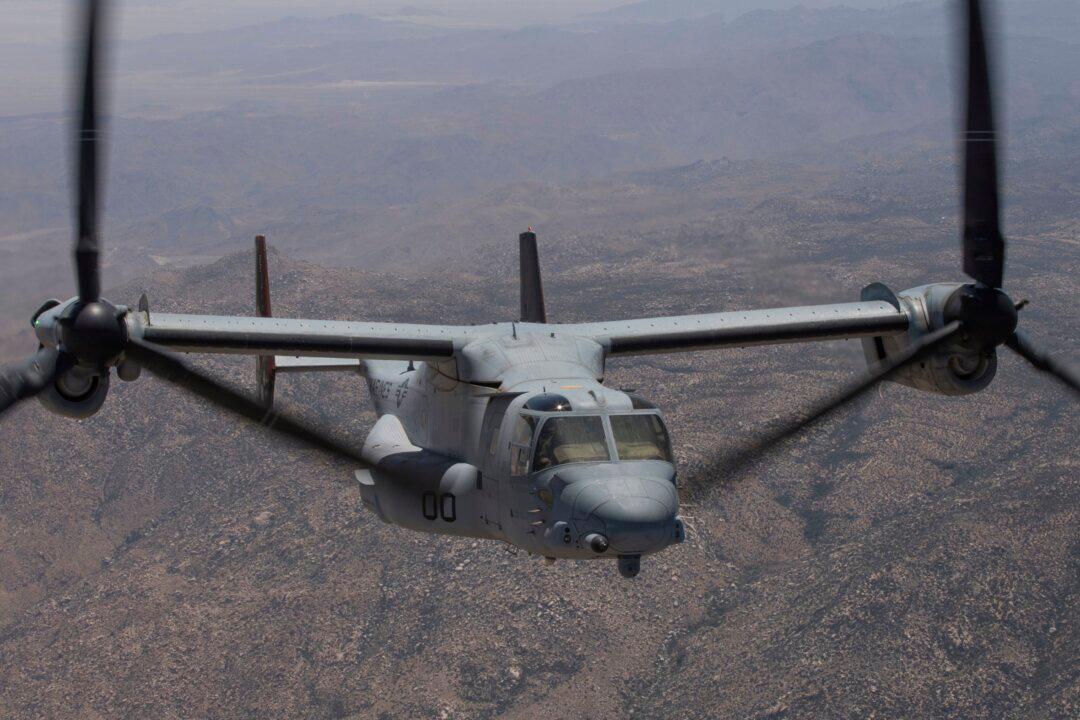WASHINGTON—The deadly crash of a Marine V-22 Osprey in California last year was caused by mechanical failure, according to an investigation that ruled out pilot and maintenance errors.
The more than 400-page report released on Friday concluded that the Marines were doing routine flight operations when a “catastrophic, unpreventable, and unanticipated mechanical failure occurred.” The Osprey crashed in a remote area near Glamis, about 115 miles (185 kilometers) east of San Diego.





